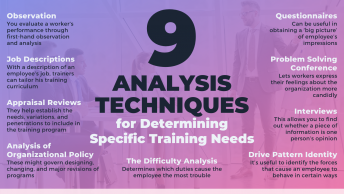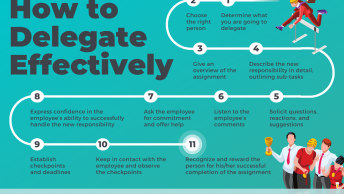
Consistency, consistency, consistency — if you hear about anything being vital to a successful blog, it’s consistency. But what happens when you need a break? What happens if you need time off for personal reasons or reasons beyond your control? Will your readers go elsewhere or unsubscribe if you take time off from blogging?
Fortunately there are things you can do to keep your readers happy while you take time off from your blog, whether you have a lot of time to plan or have to make a sudden schedule change.
Blog Consistency Doesn’t Have to be Crippling
The point of consistency in blogging is that you let readers know what to expect. That’s a good thing. But you also don’t have to be obsessive about it. A missed day here and there in a schedule where you usually post several times per week isn’t likely to cost you readers. If you post infrequently (like once per week or once per month) it might be a bigger problem. The longer the break between posts, the easier it is for readers to forget about you.
Sometimes that fear of being forgotten (or losing subscribers and income) makes us paranoid about a change in our blogging schedule — especially if blogging is an important part of our businesses. But sometimes it’s also out of our hands and the time off isn’t optional; we have to take it. Whether you’re leaving your blog behind for a mental vacation or something came up and you have no choice but to go quiet for a while, here are some things you can do to keep your blog active and keep readers coming back for more.
How to Take Time Off While Giving Readers What They Want
- Pre-write blogs posts. Schedule them to go live during your time away from blogging. This keeps your original content posting even when you’re not there. This is the best option if you know well in advance that you’ll need time off.
- Bring in a comment moderator. Get a trusted friend, colleague, or employee to monitor comments for you while you’re gone. Pre-scheduling posts is a good start, but you can still stifle conversations if no one weeds out the spam and approves new comments. Only ask someone to help with this if you trust them enough to give them administrator access to your blog though. If you don’t have anyone like that, just let readers know ahead of time that comments may be delayed slightly.

If your blog is stressing you out, bring in help. – Credit: BigStockPhoto.com Feature guest posters.
People often guest post on other people’s blogs to promote themselves and their businesses. That doesn’t mean they write marketing drivel and publish it to your blog. They write informative articles for your audience, and you give them a short bio with a link or two at the end of the blog posts. You can line up one contributor who will fully manage and write for your blog while you’re gone (although again you’ll need to give them administrator access to post and deal with comments). Or you can get early submissions from several guest posters and schedule them to go live while you’re gone. The former is a good option if you need someone to fill in quickly, and the latter works better if you have time to plan and solicit contributions.
- Hire a freelance blogger. Another option is to hire a professional blogger to manage your site when you can’t post to the blog for a while. Just be sure to find someone who writes in your niche and who has a style that won’t turn off your usual readers. The benefit of a freelancer is that they should already be fully trained in all blogging basics — the platform, how to write effectively for the Web, how to deal with comments, etc.
- Post an announcement. While it’s a last resort, you also have the option of posting a short announcement letting readers know you’ll be gone. Ideally if you know you’ll take time off ahead of time you’ll respect them enough to schedule things in advance. But in the case of an emergency, readers can be very understanding if you’ll be silent for a short amount of time. Some people don’t like the idea of announcing it, but I think it’s far more courteous than just disappearing (although I’ve been guilty of both on various blogs I’ve run in the past).
Overall, stop worrying. You won’t lose most loyal readers just because you need a break or have to deal with more important issues for a while. Consistency is great, but it doesn’t have to be completely flawless. Hold yourself to high standards, but not impossible ones. If you need time off to refresh, take it. You’ll come back fresher and more enthusiastic than ever, and that’s good for your readers as much as it is for you.














If you hire a substitute blogger while you’re gone you’ll have to decide whether to share with your readership this new identity. One point to consider might be wether this person will frequent the blog or be a one-time correspondent. As always, consider your audience, what information is important to them. Also, consider your content. If your blog is primarily a business promotion site with static content, that get updated with new content but older content remains constant, then your customers just want to know they are being served well, rather than by whom. One exeption that comes to mind is when businesses use foreign outsourcing of customer service representation. Here customers often are disgruntled because they want to support the U.S. economy in its time of crisis rather than the global economy. Well, these are just a few extra thoughts, some of which have derived from correlative positive business experiences. One example I’d like to mention is Anette’s site that designs decals and stickers for cars. She does an excellent job with her blogs, but also maintains the more static business content relative to her customer’s needs well. She also designs and prints some of the most amazing clear vinyl stickers for storefront windows, and does all of this with a service attitude that reminds me of going to disney. Super friendly – super Nice! Stickers